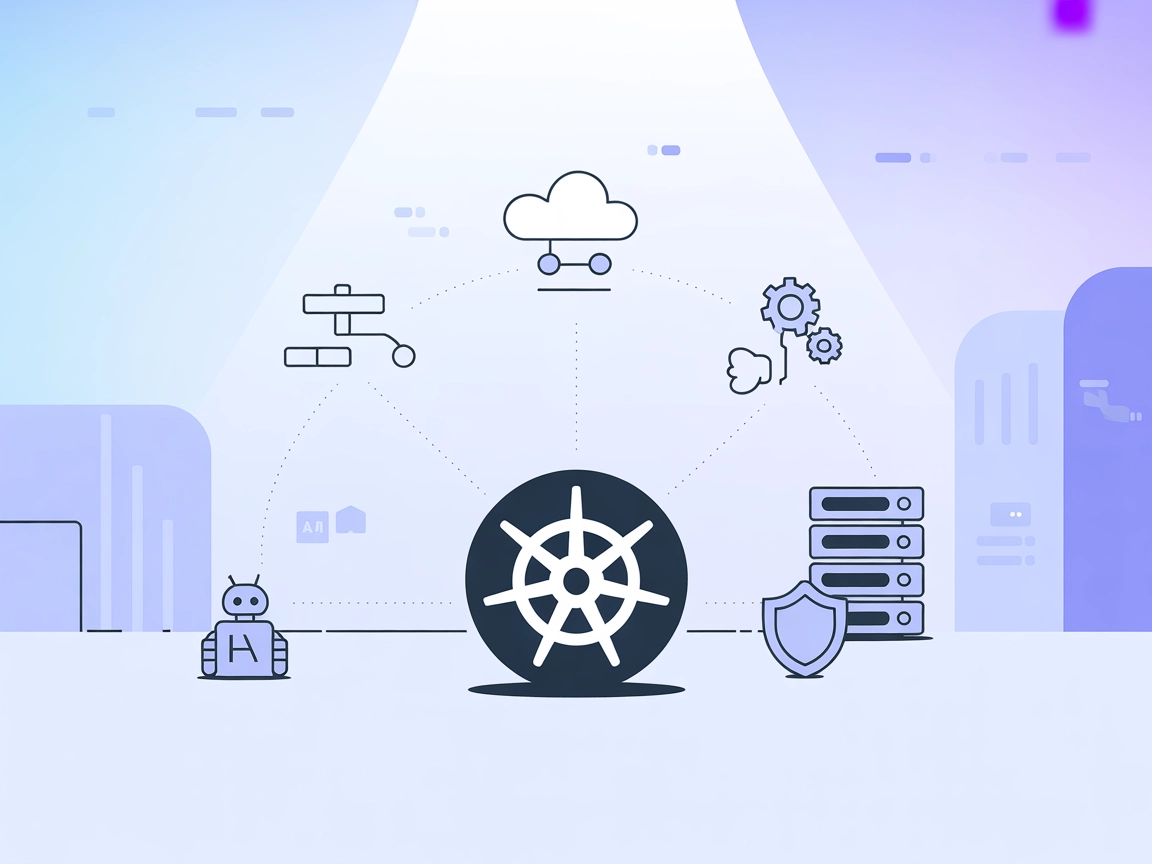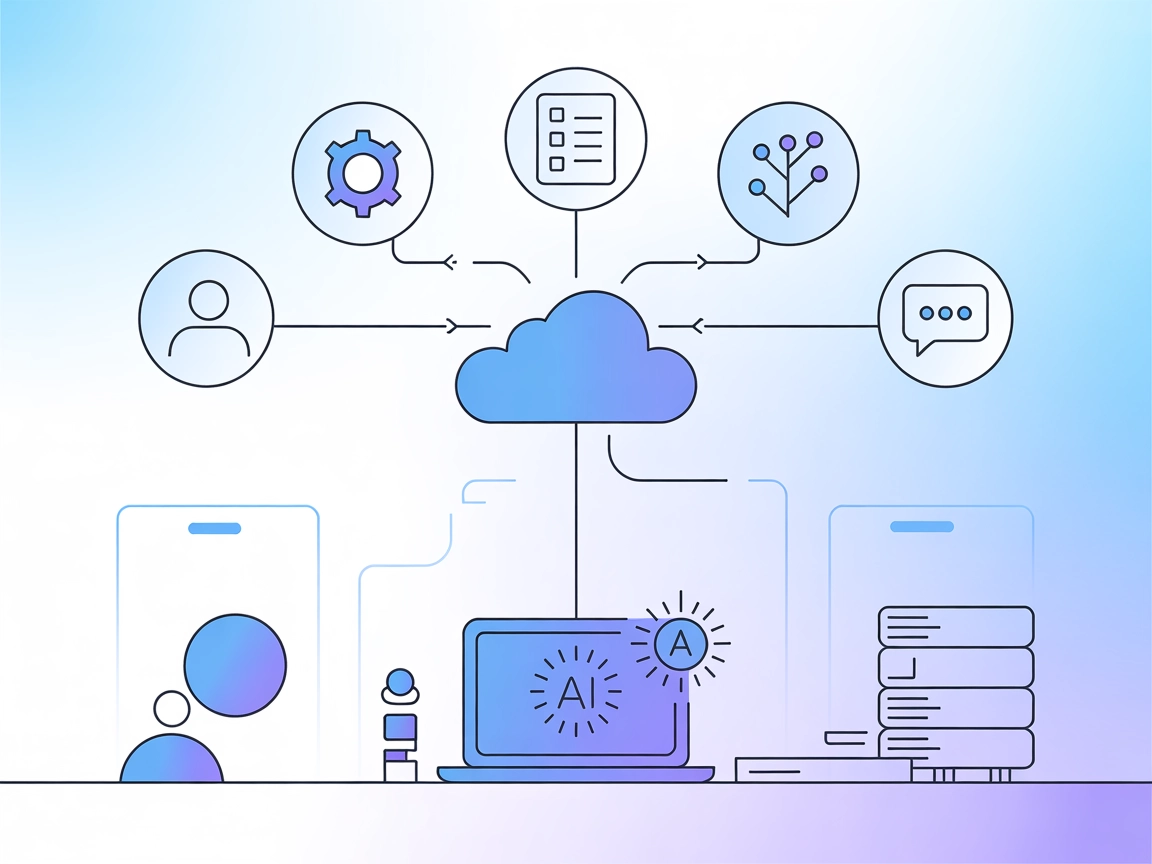
OpsLevel MCP Server
The OpsLevel MCP Server bridges AI assistants with OpsLevel's service catalog and engineering data, enabling real-time access to service metadata, compliance au...

ops-mcp enables automated AI-driven management of unikernel images and instances using the nanos/ops toolchain, perfect for cloud-native and infrastructure automation workflows.
FlowHunt provides an additional security layer between your internal systems and AI tools, giving you granular control over which tools are accessible from your MCP servers. MCP servers hosted in our infrastructure can be seamlessly integrated with FlowHunt's chatbot as well as popular AI platforms like ChatGPT, Claude, and various AI editors.
The ops-mcp MCP Server is designed to interface with the unikernel ecosystem using the nanos/ops toolchain. It acts as a bridge between AI assistants and the powerful features of the OPS platform, allowing AI-driven workflows to interact with and manage unikernel instances and images. By exposing operations such as listing available unikernel images, managing running instances, and creating new unikernel deployments, ops-mcp enables developers and AI clients to automate cloud-native infrastructure tasks efficiently. This server is particularly useful for tasks involving infrastructure automation, cloud deployments, and the management of lightweight, secure unikernels, streamlining the development and operational workflow for teams leveraging nanos/ops.
No prompt templates are mentioned in the available documentation or repository files.
No explicit resources are documented in the repository or README.
No setup instructions for Windsurf are available in the documentation or repository.
~/Library/Application Support/Claude/claude_desktop_config.json.mcpServers section to include ops-mcp:{
"mcpServers": {
"ops-mcp": {
"command": "/Users/eyberg/go/src/github.com/nanovms/ops-mcp/ops-mcp",
"args": [],
"env": {
"HOME":"/Users/eyberg",
"LOGNAME":"eyberg",
"PATH":"/bin:/Users/eyberg/.ops/bin",
"SHELL":"/bin/zsh",
"USER":"eyberg"
}
}
}
}
ops-mcp binary.Securing API Keys:
You may specify sensitive environment variables in the env section of the configuration.
Example:
"env": {
"API_KEY": "${YOUR_OPS_API_KEY}"
}
No setup instructions for Cursor are available in the documentation or repository.
No setup instructions for Cline are available in the documentation or repository.
Using MCP in FlowHunt
To integrate MCP servers into your FlowHunt workflow, start by adding the MCP component to your flow and connecting it to your AI agent:

Click on the MCP component to open the configuration panel. In the system MCP configuration section, insert your MCP server details using this JSON format:
{
"ops-mcp": {
"transport": "streamable_http",
"url": "https://yourmcpserver.example/pathtothemcp/url"
}
}
Once configured, the AI agent is now able to use this MCP as a tool with access to all its functions and capabilities. Remember to change “ops-mcp” to whatever the actual name of your MCP server is and replace the URL with your own MCP server URL.
| Section | Availability | Details/Notes |
|---|---|---|
| Overview | ✅ | Describes server function and scope. |
| List of Prompts | ⛔ | No prompt templates documented. |
| List of Resources | ⛔ | No explicit MCP resources documented. |
| List of Tools | ✅ | Four tools listed: list instances/images, create instance, create redis-server. |
| Securing API Keys | ✅ | Example provided in Claude setup. |
| Sampling Support (less important in evaluation) | ⛔ | Not mentioned. |
ops-mcp provides basic but useful functionality for managing unikernel workloads via MCP, exposing several core tools. However, it lacks documentation on prompt templates and resources, and only includes detailed setup for Claude. The project would benefit from more thorough documentation and wider integration support.
| Has a LICENSE | ✅ (Apache-2.0) |
|---|---|
| Has at least one tool | ✅ |
| Number of Forks | 0 |
| Number of Stars | 1 |
MCP Table Score: 4/10
Reason: While ops-mcp is functional and open source with a basic toolset, it lacks documentation and support for advanced MCP features like prompts, resources, roots, and sampling, limiting its utility for broader AI-driven automation workflows.
ops-mcp is an MCP Server that interfaces with the nanos/ops toolchain, enabling AI-driven workflows to list unikernel images, manage instances, and automate cloud-native infrastructure using lightweight, secure unikernels.
ops-mcp offers tools for listing all unikernel instances, retrieving available images, creating new unikernel instances from images, and deploying pre-configured services like Redis as unikernel instances.
Add the MCP component in your FlowHunt flow, then configure it with your ops-mcp server details using the provided JSON template. This lets your AI agents access all ops-mcp capabilities as tools.
Yes, ops-mcp is open source and licensed under Apache-2.0.
ops-mcp is best used for AI-driven unikernel instance management, automated deployment pipelines, auditing of unikernel images, and rapid setup of specialized services in cloud-native environments.
Automate unikernel deployments and manage cloud-native infrastructure with ops-mcp. Integrate it into your FlowHunt workflows today.

The OpsLevel MCP Server bridges AI assistants with OpsLevel's service catalog and engineering data, enabling real-time access to service metadata, compliance au...

The Kubernetes MCP Server bridges AI assistants and Kubernetes clusters, enabling AI-driven automation, resource management, and DevOps workflows through standa...

The Azure DevOps MCP Server acts as a bridge between natural language requests and the Azure DevOps REST API, enabling AI assistants and tools to automate DevOp...
Cookie Consent
We use cookies to enhance your browsing experience and analyze our traffic. See our privacy policy.